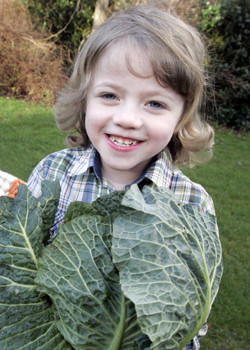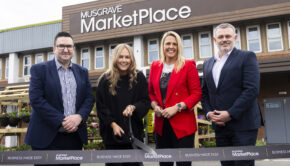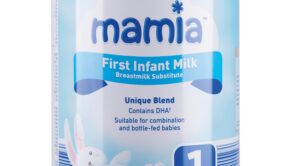SuperValu reassures its customers with new labelling due to E.coli scare

Ireland's Food Safety Authority has assured consumers that none of the E.coli infected produce has reached here; a message confirmed by new SuperValu labelling
20 June 2011
SuperValu has launched a new on-pack label to reassure consumers of the origin of its Irish salad produce following the E.coli outbreak in Germany in the past month.
Martin Kelleher, SuperValu managing director, said: “Our new label will help to further promote Irish suppliers and also give consumers the peace of mind they need, around the country of origin of the salad produce they are purchasing.”
German health authorities at the weekend pinpointed beansprouts as the main source of the worst E.coli epidemic in more than 60 years and confirmed that the contaminated vegetable originated in an organic farm in Bienenbuttel, in northern Germany.
To date 35 people have died from the outbreak that was originally thought to have been caused by organic cucumbers and tomatoes from Spain.
The Spanish government claimed that its farmers lost around E200 million a week after the health authorities issued false warnings about Spanish cucumbers as a potential source of the infection, triggering an import ban in several countries.
The Food Safety Authority of Ireland assured people that none of the implicated produce had reached Irish shores. It said: “The German authorities confirmed that the laboratory results of the organic beansprouts tested positive for the outbreak strain of E.coli (VTEC). This laboratory result is another link in the chain of evidence suggesting that organic beansprouts have to be considered as an essential source for the E.coli infections of the last weeks and confirms the epidemiological findings.”
“Last week, the German authorities closed the production plant and the organic beansprouts were withdrawn from the market. None of the organic beansprouts from this production plant were exported from Germany.”
Since 2 May, 795 cases of HUS (Haemolytic Uraemic Syndrome) and 2,287 non-HUS VTEC cases have been reported from European Union Member States.
Prof Alan Reilly, chief executive of the FSAI said: “In Ireland, there have been no reported cases of human illness associated with the German outbreak strain of E.coli. Consumers do not need to be concerned.”
When it was initially thought that the E.coli outbreak was caused by cucumbers, SuperValu, Dunnes Stores and Lidl withdrew certain batches of Spanish organic cucumbers from shelves.
Musgrave made the decision to pull 20 cases of organic cucumbers at the end of May. Head of communications for Musgrave, Sue Lamon-Diver told ShelfLife that the move had been made as an “extreme precaution”.
A statement from Lidl said that its produce was not affected from the outbreak. “Lidl Ireland can confirm that it has not been affected in any way by any of the products you refer to in your enquiry. As always Lidl is working closely with the Food Safety Authority of Ireland on this matter.”
The Robert Koch Institute, Germany’s national disease control and prevention centre, confirmed that the death toll in the five-week epidemic rose to 35 at the latest count, but the number of new infections continued to drop steadily.
It estimated that around 3,200 people have developed symptoms of E.coli infection since its outbreak.
Germany’s farmers’ association has described the epidemic as the “worst crisis” for the country’s agricultural sector since the Chernobyl nuclear disaster 25 years ago, and claimed that farmers and traders of fresh fruits and vegetables have suffered massive losses as a result of false warnings about cucumber, tomatoes and lettuce as possible carriers of the deadly Escherichia coli bacteria.
Gerd Sonnleitner, president of the German Farmers’ Association described as “insufficient” €210 million offered by the European Commission in Brussels last week to pay compensation for EU farmers hit by the crisis.
According to the estimates from the European farmers association Copa—Copeca, the EU farmers and fresh produce trade have suffered losses of €400 million a week.
A German epidemiologist has warned that more than 730 patients currently undergoing treatment for the haemolytic uraemic syndrome (HUS), the worst form of E.coli infection, will suffer from consequential damage during the rest of their life and around 100 of them will require kidney transplantation or life-long dialysis.



 Print
Print






Fans 0
Followers